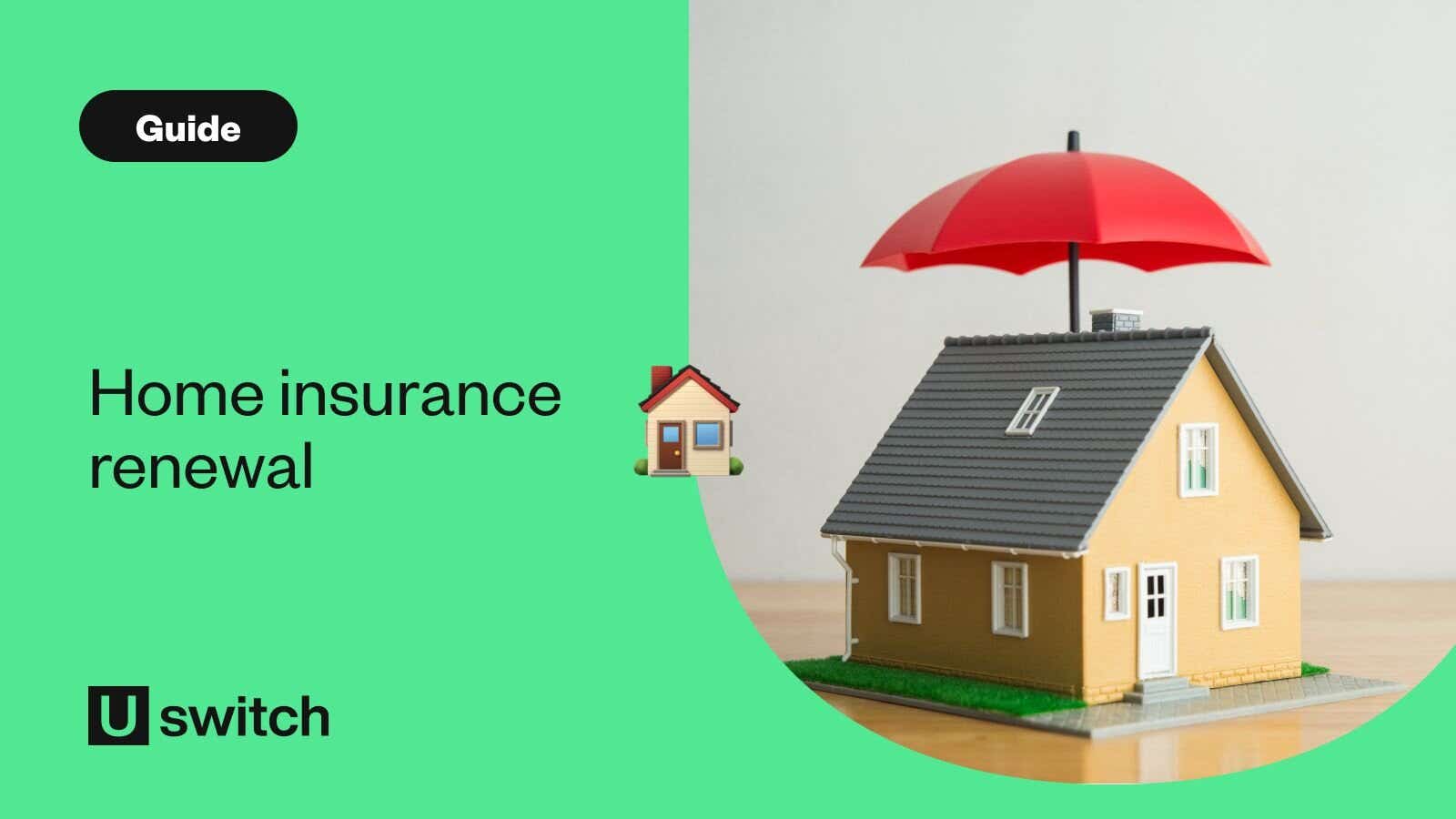Home insurance renewal


Should I auto renew my home insurance?
Letting your home insurance auto-renew might feel convenient, but it can also lead to you paying more than you need to.
When your home insurance policy is due to expire, your provider will usually send you a renewal quote. If you do nothing, your policy will automatically roll over, often at a higher price.
To get better deals it's worth comparing quotes from different providers and considering switching.
How much does home insurance renewal cost?
There’s no set price for renewing your house insurance, it depends on your property, your policy, and whether your circumstances have changed. That said, many people find their premium goes up at renewal, even if they haven’t made a claim.
This could be due to:
- General inflation or rising rebuild costs
- Changes to your cover
- A reduction or loss of your no-claims discount
To avoid overpaying, it’s worth checking whether your current level of cover is still right for you and if not, looking at what’s available elsewhere. A quick comparison could lead to better value for the same, if not better protection.
When is the best time to renew home insurance?
The best time to renew your home insurance is usually around 3 weeks before your policy ends. Leave it too late especially until the day before renewal and your premium is likely to be much higher.
You can also set a reminder when your policy starts, so you’re not caught out when renewal comes around.
Already received your renewal notice? Now’s the time to shop around, compare offers and see if switching could save you money.
What to consider when renewing home insurance
Before you accept your renewal, take a few moments to check whether your policy still meets your needs. Consider the following:
1. Is your level of cover still right?
If you’ve made improvements to your home, or downsized your belongings, you may need more or less cover than last year. Double-check the sum insured and any additional cover options, such as mobile phone insurance or accidental damage.
2. Have you made any claims?
If you've claimed in the last year, this might affect your premium or impact your no-claims discount. It’s worth checking how this has been factored into your renewal.
3. Could you save by switching?
Even if your current premium has gone down, there may still be better deals out there. Learn how to get the cheapest home insurance in a few simple steps.
4. How do you want to pay?
Many people don't realise that paying monthly often works out more expensive than paying annually. If you can afford to pay upfront, doing so could lead cost savings. But annual vs monthly home insurance payments really depend up on your circumstances.
5. What if you need to make a claim?
It’s always a good idea to review the claims process before you commit.
If you need to make a home insurance claim the first step is to find your policy documents and contact your home insurer. You will need your policy number and some details about what you are claiming for. You may also be able to submit a claim online.
Compare home insurance quotes
See a range of home insurance quotes in just a few minutes when you compare with Uswitch
FAQs
Can I cancel my home insurance after automatic renewal?
Yes, you can cancel your home insurance after automatic renewal. Most insurers offer a 14-day cooling-off period from the renewal date. You’ll usually get a full refund, minus any days you’ve been covered.
When should I renew my home insurance?
You should renew your home insurance around 3 weeks before your policy ends. This is usually when the most competitive prices are available and gives you time to compare and switch if needed.
Why is my home insurance renewal more expensive?
Your home insurance renewal may be more expensive due to inflation, changes in cover, or a reduction in your no-claims discount. Some insurers also increase premiums automatically, which is why comparing quotes is key.
Is it better to have a monthly or annual home insurance policy?
An annual policy is usually cheaper overall than paying monthly. Monthly payments often include interest or admin fees, making them more expensive over time even if they feel more manageable short-term.